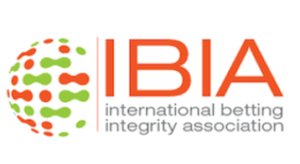 In the world of betting, there will always be people keen to be engaged in nefarious methods of winning themselves money. Whether it be bribing someone in order to ensure that a bet that they want to place will be a winning one or else a group of people placing bets with the hope of manipulating the market, the reality is that the betting industry is one that is ripe for corruption. As a result, a body needs to take on the responsibility of ensuring integrity within the industry as much as possible, which is where the IBIA comes in.
In the world of betting, there will always be people keen to be engaged in nefarious methods of winning themselves money. Whether it be bribing someone in order to ensure that a bet that they want to place will be a winning one or else a group of people placing bets with the hope of manipulating the market, the reality is that the betting industry is one that is ripe for corruption. As a result, a body needs to take on the responsibility of ensuring integrity within the industry as much as possible, which is where the IBIA comes in.
The International Betting Integrity Association declares itself to be the ‘leading global voice on integrity for the licensed betting industry’. The organisation runs a ‘Monitoring & Alert Platform’ that is used to keep an out for suspicious betting activity, which it will then flag to the concerned parties. It is an effective anti-corruption tool, aimed at detecting anything going on in the betting world that could be considered to be unusual. The IBIA works with the likes of the IOC, FIFA and gambling regulators, using their data to track any possible corruption or wrong-doing.
Who Are The IBIA?

The International Betting Integrity Association was launched in 2005 as ESSA, the betting integrity body. It changed its name in 2019, focussing upon the representation of sports betting operators that wished to be regulated. At the time, the Secretary General of the IBIA, Khalid Ali, said that the decision was made in order to ‘communicate who we are, what we do and where we want to be’. In the years before the re-brand, ESSA had been active across six continents. The thought process was that their workload would only increase as gambling markets opened up around the world.
Nowadays, the body’s mission is relatively simple: to eliminate match-fixing, spot-fixing and other forms of corruption in sport. Members of the International Betting Integrity Association have their own licensing and regulatory obligations to live up to, in accordance with the countries that have given them a licence. On top of that, they also have a need to work with other stakeholders in the industry to ‘address betting related corruption’. They work together in order to play a role in the investigation and prosecution of guilty parties, as well as looking towards the sanctioning of those involved.
Research & Education

Whilst investigating and prosecuting those guilty of match-fixing and other nefarious methods of influencing the outcome of sports events will always be at the top of the IBIA’s agenda, the body is also responsible for the education of people around such things. The IBIA believes that educating those involved in sports is crucial to improving things around sporting corruption. This involves players as well as other people sporting personnel, which the IBIA feels is ‘key’ to protecting the integrity of all sports that people both play in their own time and then bet on when relevant.
As a result of this desire to educate, the IBIA supports a wealth of European Union Erasmus+ funded anti-match-fixing projects, including the following:
- PROtect Integrity, which is run by EU athletes
- PROtect Integrity Plus, which offers an app that allows athletes to raise concerns and suspicions
- AMATT, or Anti-Match Fixing Top Training, which aims to improve the understanding of sports organisations around match-fixing
- Training on Protected Reporting System for Professional and Grassroot Sport. This is an educational programme aimed at sporting people, giving them information on how to use reporting systems to stop match-fixing in its tracks
This side of the IBIA is arguably the most important, given that stopping people from getting involved in match-fixing starts with educating them about why it is so bad and what they can do to stop themselves from being tricked by others. Being able to report those that might wish to fix a match will also help to cut such activities off at the source. This is something that the International Betting Integrity Association is constantly looking to evolve and update, adding more and more programmes to its roster in order to ensure the education of as many people as possible.
Examples Of What It Does
 In July of 2014, the International Betting Integrity Association published its report for the second quarter of that year. In it, the body reported that 47% of all alerts around the integrity of the betting market originated in Europe, with Asia and South America accounting for 13% of alerts apiece. There were 37 cases reported in the second quarter of 2021, which was a 41% decline on the first quarter. It was also lower than the 65 cases that were reported during the same time period of 2020. One of the interesting things came in the form of the sports being reported against.
In July of 2014, the International Betting Integrity Association published its report for the second quarter of that year. In it, the body reported that 47% of all alerts around the integrity of the betting market originated in Europe, with Asia and South America accounting for 13% of alerts apiece. There were 37 cases reported in the second quarter of 2021, which was a 41% decline on the first quarter. It was also lower than the 65 cases that were reported during the same time period of 2020. One of the interesting things came in the form of the sports being reported against.
Cases involving football had risen from 12 to 16, whilst table tennis saw nine cases reported against the 18 that come in the previous quarter. Other drops included six in tennis as opposed to 18 and the same number in eSports compared to 17. A report conducted by IBIA in association with H2 Gaming Capital found that there was a loss of around £20 million because of match-fixing. Even with that in mind, though, the report found that no corruption issues were found in 99.96% of markets. It was also felt that the UK had a robust regulatory infrastructure.
Unsurprisingly, the reports involved sports popular in their geographical locations. The football reports, for example, came from the likes of Spain, the Netherlands and Algeria, whilst North America saw two reports come in about tennis. The IBIA worked alongside the Betting and Gaming Council in the UK, the Swedish Branscheforenigen för Onlinespel and the European Gaming and Betting Association in order to clamp down on the cases that it did identify. The very existence of the body makes it much harder for people to engage in corruption, but obviously examples will always slip through the cracks.
